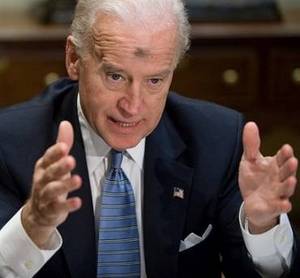For years, pundits believed that the only Catholics a liberal Democrat could win en masse were theologically liberal, “Cafeteria Catholics” who don’t attend mass or listen to the Pope very often.
While Obama did clean up with those lefty Catholics, a new survey by Professor John Green of University of Akron in First Things, shows that he also made stunning improvements among more traditional white Catholics.
(A “traditional Catholic,” according to Green’s methodology, is one who is more likely than average to attend mass, pray, and read scripture; more likely to believe in God, the afterlife, scripture and the devil; and more likely to say religion is very important in their lives.)
In 2004, white traditional Catholics went 78%-22% for the Republican, George Bush, over the Democrat, John Kerry. In 2008, they went 61%-39% for John McCain over Barack Obama. That represents an amazing 17 point improvement for the Democrat.
How did a pro-choice, pro-gay rights, Protestant make such inroads? Green suggests that the first reason is the economy. These traditional Catholics voted for Obama despite his liberal views on social issues.
Mark Silk of Trinity College offers a different theory – that these results reflect less Obama’s strength than John Kerry’s weakness. Kerry was battered by Bishops for being pro choice but also for, in effect, being a bad Catholic.
“On the one hand, it suggests that the message that Catholic politicians should be pro-life …has definitely gotten through to the old-time faithful. On the other, it indicates that such Catholics understand this to be less a natural law injunction incumbent on all members of society than a religious obligation for their own kind.”
Or, as I usually get myself in trouble by saying, Obama did better among Catholics because he wasn’t Catholic.
Green and Silk hit the two most important factors but I’d like to throw out a few more (less fully-baked) theories.
The Pope As Secondary Influence. In the run-up to the Iraq war, Catholics heard Pope John Paul II’s opposition and Bush’s support – and sided with Bush. But that doesn’t mean the Pope’s views didn’t register at all. When the war turned south, Catholic opinion turned rapidly against it. I can’t help but think the Church planted seeds of doubt. One of the reasons traditional Catholics supported Obama was because they oppose the Iraq war.
The Recessive FDR Gene. Catholics became Democrats in the early 20th century because the party welcomed immigrants and created jobs. As those Catholics grew older, they became more distant from the immigrant experience and more secure economically. They then had the luxury of worrying about other issues like crime and abortion. In 2008, for the first time in almost 90 years, we saw an economic calamity AND a growing anti immigrant sentiment — both attributed to Republicans. And you had the Catholic Church preaching economic equity and support for immigrants. On some level, the children and grandchildren of the FDR Catholic Democrats may have carried Democratness as a recessive gene, minor, rarely seen, but ready to reawaken under just the right circumstances.
My hunch is that the white traditionalist Catholics are the most fragile part of the Obama coalition. They’re subject to tremendous peer-pressure: most of their demographic compatriots voted Republican, so they need to withstand the mockery of their friends. The economy may recede a Democratic issue in the future, either because conditions worsen and Democrats are blamed, or improve, liberating people to think about other issues. All this is why, to keep traditionalist Democrats in the long run, Obama will not only have to improve the economy but deliver on some set of socially conservative issues such as abortion.
Portions of this post first appeared on The Wall Street Journal Online (WSJ.com)

